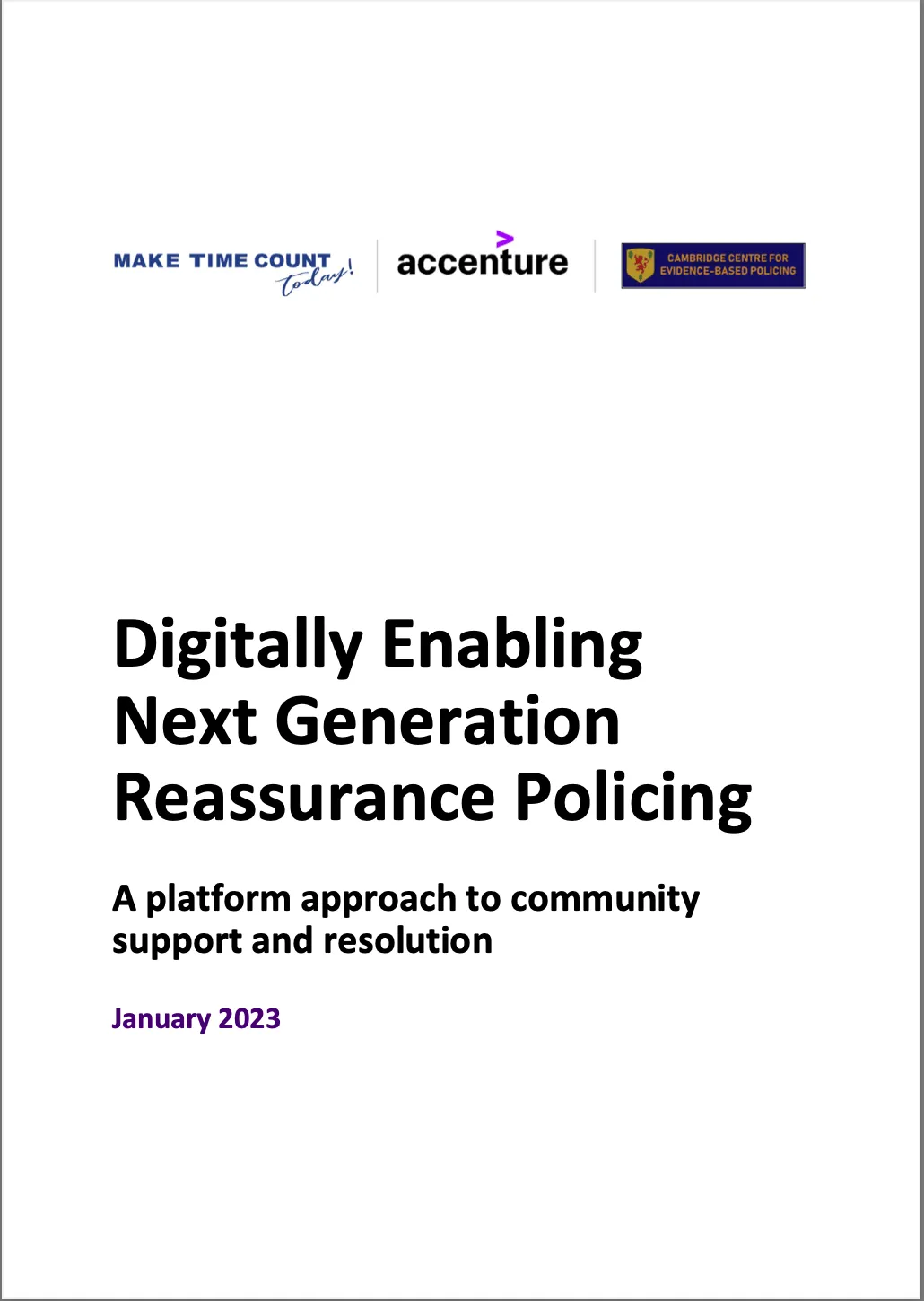
Policing across the UK is facing significant and complex challenges; the emergence of new threats, a wave of technology-driven disruption, changing citizen expectations, an increasingly inexperienced workforce, retention challenges, a growing need for a multi-agency approach, and most critically “crumbling”1 public trust and confidence. These challenges are only likely to increase given the tight labour market, cost of living crisis and the overall worsening economic outlook.
To address these challenges in the UK, and other countries, a resurgence in reassurance, or neighbourhood, policing is taking place. With a focus on officers being visible, accessible and familiar, they can better address the fear of crime, regain public trust and confidence, as well as respond to local community needs. This renewed focus, at a time of budgetary pressures, means that the police and their governance must learn from the lessons of the past and seize the opportunities of technology and changes in legislation to deliver more efficiently and effectively. To achieve this, it must be embedded as a core police activity, aligned to a digitally-enabled community-based policing strategy.
It is critical to provide officers with the capability to manage offenders and victims locally and for supervisors to monitor those interactions to divert, protect and support individuals and families. Officers should also be provided with the necessary information and guidance to make decisions accurately and confidently, and to be informed of the applicable follow-up actions from support agencies well after the initial contact.
The provision of the right type and quality of service must be delivered to the person in need, whether the offender, victim, witness or other at-risk or vulnerable individual. This will allow organisations who provide these critical interventions to reach those in need, helping to prevent offending, provide reassurance and further support.
The ambition for a new and evolved model of reassurance policing include; the effective issuance and management of Out of Court Disposals (OoCDs), reducing re-offending through Integrated Offender Management (IOM); and management of bail conditions and Youth Offending services. These all rely on enabling the diversion of at-risk offenders through managed partnership intervention, whilst supporting victims.
Police forces can deliver new ways of working by adopting the pioneering digital platform-based approach to reassurance policing developed by Make Time Count, a social enterprise developing a new and reimagined approach for the challenges outlined above. This approach is supported by Accenture, a global technology and advisory organisation with a proven capability to implement and integrate solutions into complex environments and with extensive public safety industry expertise.
Together, Accenture and Make Time Count are working to deliver this new platform approach, focused on multi-agency collaboration to support and resolve several use cases. By providing a digital approach to reassurance policing, a successful implementation at scale could save over £900m2 annually as well as a significant reduction in the number of offenders and victims. This builds on work conducted with His Majesty's Prison and Probation Services and the Cambridge Centre for Evidence-Based Policing acting as our data analytics partner.